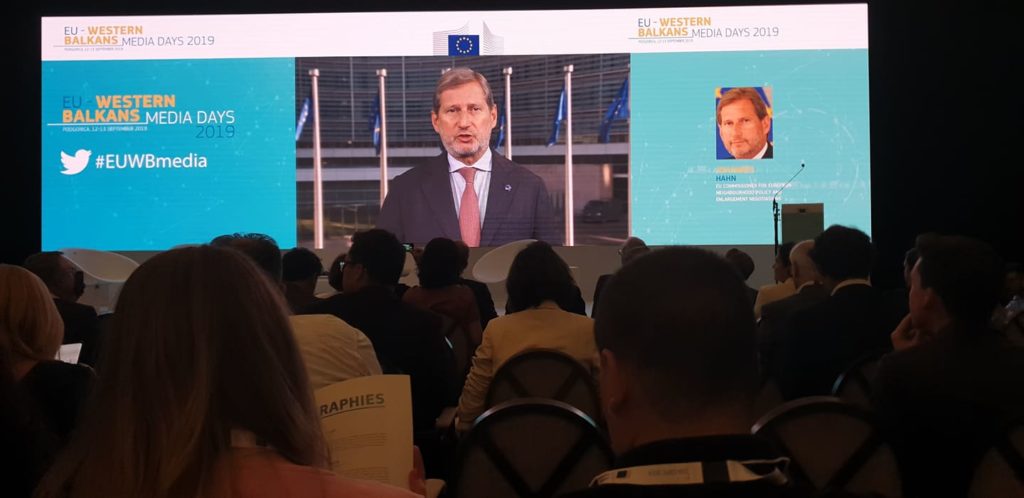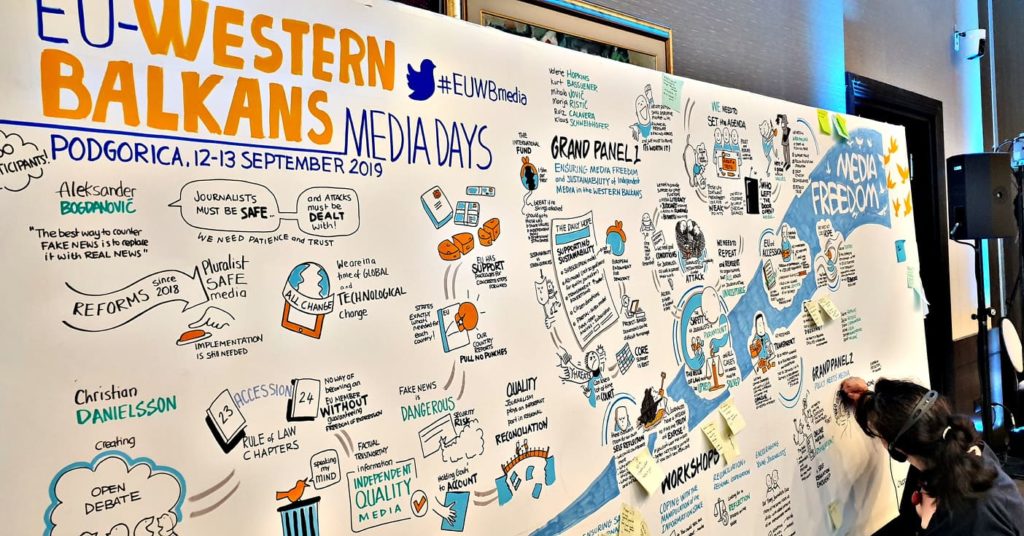The third edition of the EU-Western Balkans Media Days started today, in Podgorica. Organised by the European Commission, the Conference gathers around 350 representatives of media and civil society organisations, as well as policymakers from the Western Balkans and the EU.
The Commissioner for European Neighbourhood Policy and Enlargement Negotiations, Johannes Hahn, opened the Conference with a video-message. Hanh stated that there can be no progress on the path towards the European Union without safeguarding media freedom and freedom of expression.
“Media freedom is under threat, not only in the Western Balkans, but worldwide. However, the impact on the countries in transition, such as those in the Western Balkans, is even more harmful, given the fragility of the transformation process. Therefore, we have put media freedom as a key element of rule of law in the centre of our Western Balkan Strategy. This year’s country reports pull no punches, and openly addresses the deficits which, unfortunately, still exist,” Hahn said in the recorded video-message.
The Montenegrin Minister of Culture, Aleksandar Bogdanovic, also spoke during the beginning of the Conference. Bogdanovic announced that his country will continue to work on the media’s development but also on the legislation which would follow and support the media’s development.
“The government is taking all measures to address the attacks on journalists and media assets. A safe environment for the media’s work is a condition for all conditions which the State will institutionally guarantee to all media employees. None of the cases related to the attacks on journalists, their security, and the media property should be archived without specific a police, prosecutorial, and judicial dismissal,” emphasised Bogdanovic.
The Director-General of the Enlargement Directorate, Christian Danielson, welcomed all of the EU’s work through the Commission on the Enlargement Process, especially in the area of the rule of law, repeating that the freedom of expression and media freedom are not negotiable for countries who wish to join the European Union.
“According to the objective analysis in the country reports, the situation related to the media in the Western Balkans is a field where corrective efforts and positive policy actions are most needed. This is why Conferences like the Media Days are so important. We have to address this issue again and again, in public, with political authorities, and be in regular contact with media professionals to find concrete ways for improvement,” said Danielson.
This year’s third edition focuses on discussing how to guarantee freedom and sustainability of the media in the region and how to ensure support for the new generations of journalists. The discussion about reconciliation and regional cooperation, and overcoming nationalistic narratives hold a central place in the agenda of the Conference alongside themes such as the importance of independent reporting, how to avoid the manipulation of information, and how to enhance the public’s media literacy.


